Here are 15 of the most prevalent scams in Europe and what you can do to avoid them. Note that this article does not intend to paint Europe as an unsafe or dangerous place. We only aim to make our readers aware of these cons before their trip.
A trip to Europe is the trip of a lifetime, especially for budget travelers coming from Southeast Asia. We work hard for it. We save hard for it. And for Philippine passport holders like me, we go through the eye of the needle — a rigorous visa application process — for it. The last thing we want is for our dream Euro trip to be ruined by something we could have avoided.
Europe is a destination like no other. It’s culturally diverse, architecturally magnificent, and generally tourism-ready. But if there’s one thing a tourist needs to know before the trip, it’s that Europe is full of scams. Yes, these dishonest schemes can also be found in many other destinations around the world, but they surely exist in Europe, especially in big cities like Paris, Berlin, Barcelona, Madrid, Athens, Rome, Milan, Florence, Prague, London, Amsterdam, Vienna, and Istanbul.
We know this because we have visited 28 European countries over the past few years and we have witnessed and even fallen victim to many of them! We lost our phone in Athens, got taken for a costly cab ride in Istanbul, and lost a lot in bad exchange rates. It never feels good and puts a damper on the trip. We charge them to experience, but we’re writing this so you won’t have to go through them. Here are 15 of the scams to watch out for in many touristy cities in Europe and how to avoid them!
1. Pickpockets
I have a lot of friends who have toured Europe and I can count in one hand those who didn’t lose something to a pickpocket! In fact, on one of our trips, a thieving gang stole Vins’s phone while on the metro!
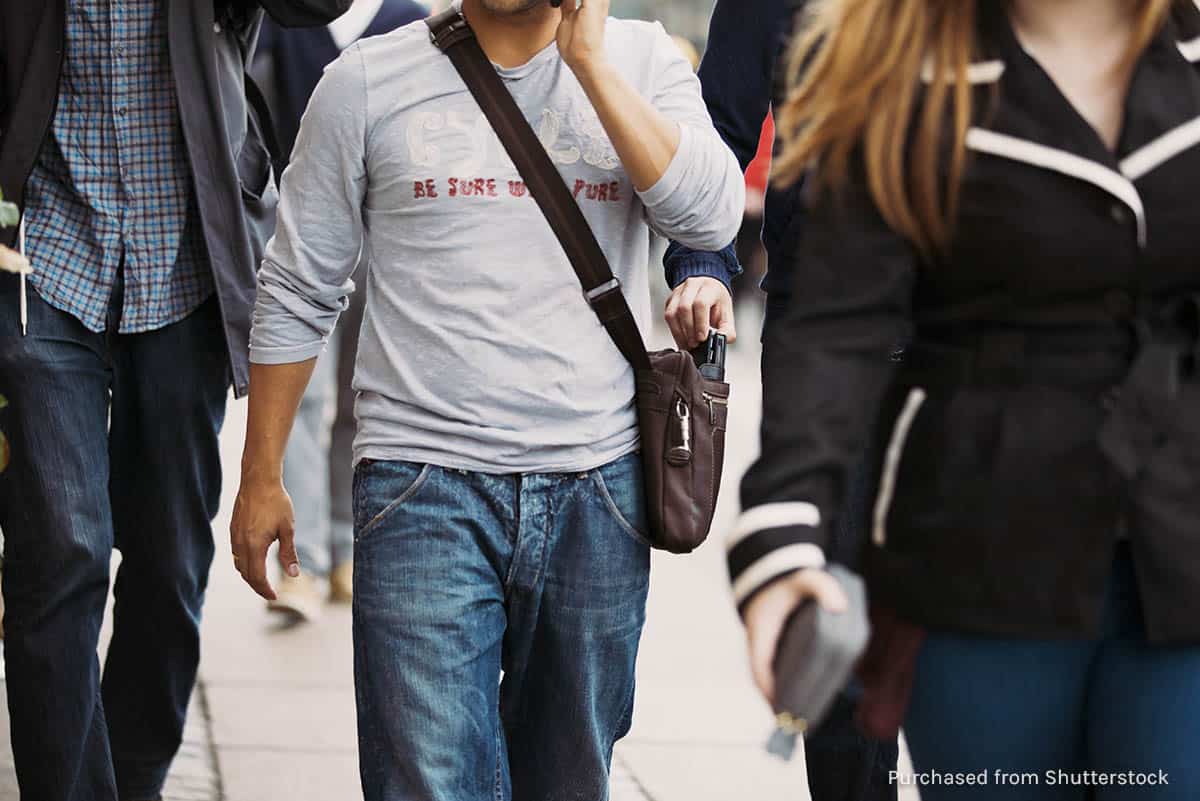
Their goal: To fish your phone, wallet or cards from your pocket or bag with incredible speed and precision.
Their usual spots: Onboard the metro or bus, at metro stations, at key tourist spots.
Their MO: Pickpocketing is a common problem in most touristy destinations around the world. But pickpockets in Europe are remarkable for one thing — creativity. They usually operate in groups. One
is the actual pickpocket, another serves as a lookout or hides the item, while the rest block your view, rattle you, or keep your attention away from your valuables. The distractions can be any of the following:
- Someone passes out in front of you and while your attention is on them or you get caught in the commotion, someone else is stealing your valuables.
- Someone squirts ketchup, mustard or bird poop on your shirt or jacket, and while you’re cleaning it up, someone is busy cleaning out your purse or pocket.
- Two people fight loudly and while you watch them bicker, someone else is trying to rob you.
- Someone, usually pretending to be deaf-mute, asks you to sign a petition. While you’re busy writing your name, an accomplice gets your wallet/phone.
- Someone pretends to be another tourist and asks for direction.
- A sexy lady starts being cozy with you. While you’re busy getting too close, she and another person are busy emptying your wallet without you knowing it.
- The door of the train malfunctions and the passenger closest to it helps you open the door so you could exit. What you don’t know is, while you’re trying to hold the door, an accomplice is fishing your phone/wallet from your bag or pocket.
For more information about the tricks that pickpockets commonly use to distract victims, READ: 7 PICKPOCKET TRICKS IN EUROPE!
How to avoid: Don’t let your belongings out of sight. Don’t put your wallet or phone in your pockets, especially the back pocket. Always place your bag in front of you and put your hand on the opening. If something unusual happens, don’t remove your hand on your bag and keep your bag in front of you. If possible, purchase one of those hidden money bags/belts where you can keep some of your cash/cards under your shirt.
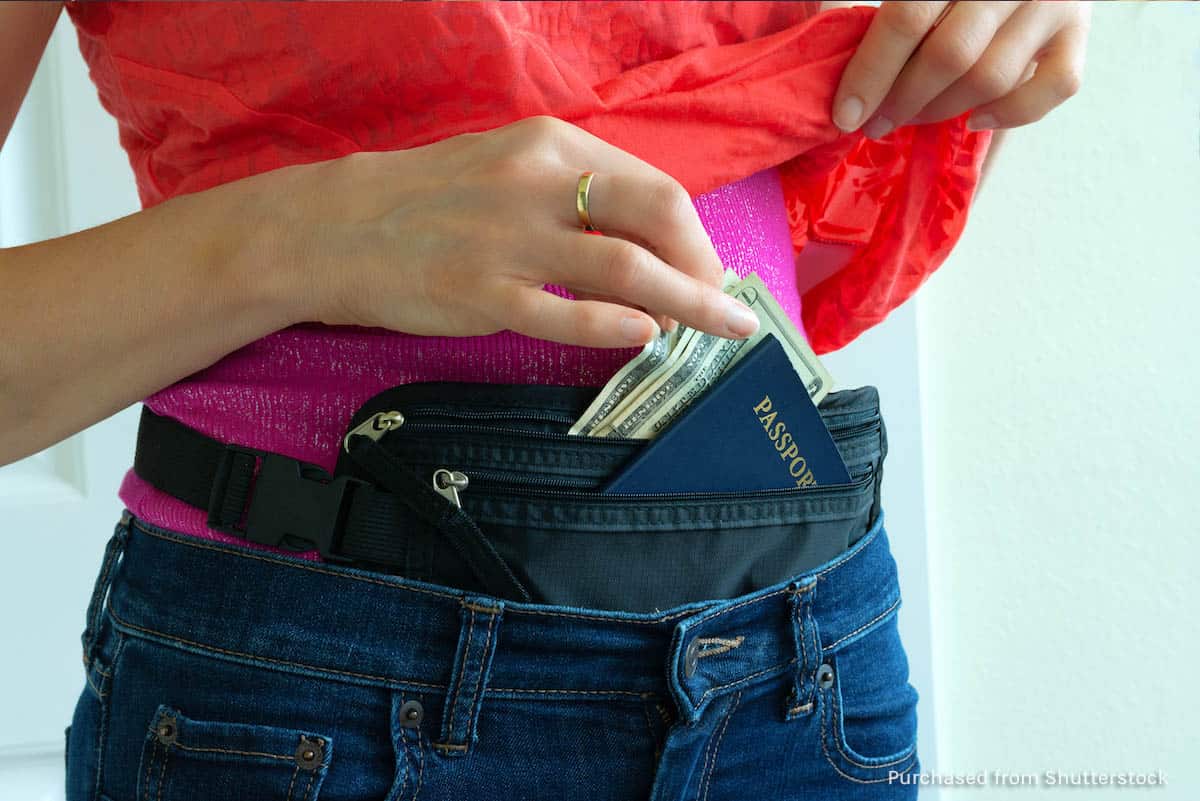
In many cities in Europe, the metro is a favorite place of operation for these thieves. They usually target tourists who have just arrived in the city because they have a lot to keep an eye on and they are unfamiliar with the city. They also get confused easily. If you have luggage in tow, you’re a moving target so be extra vigilant.
Vins and I realized that these thugs pick their victims on the platform, before you even board the train. Once you hop into the train, they go to their respective positions — two will stand next to the doors, the others near you. So what we usually do now is, we don’t board or alight the train through the same door. When it’s time to alight, we will exit through another door.
Also, don’t put all your cash and cards in one place. Keep them in multiple, separate spots so if one gets stolen, you don’t lose everything. We also now keep a decoy wallet, which is empty.
2. Taxi Scams
Sadly, we also fell victim to this. We seldom take a taxi, but in one of those rare moments, we got hit by a three-punch combo scam.
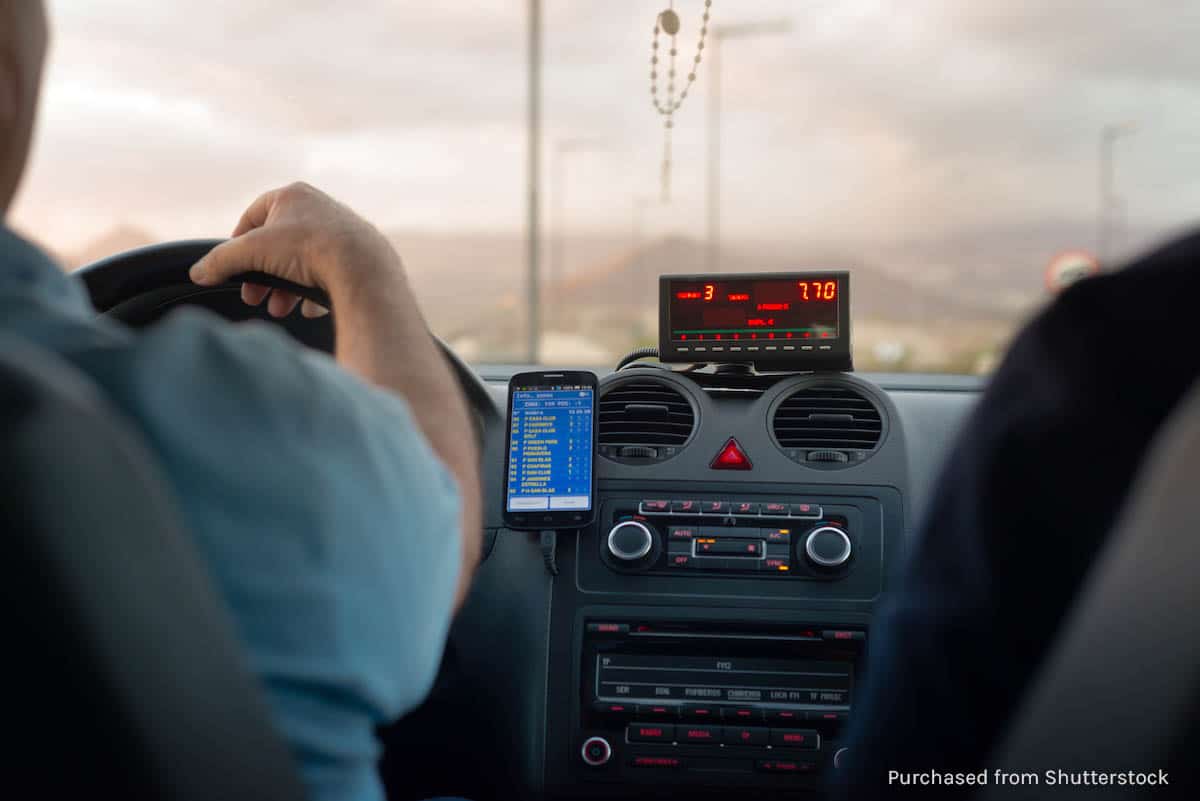
Their goal: Get more money from you by taking advantage of you not being familiar with the city
Their usual spots: Airport, train stations, and touristy areas
Their MO: The scams can be any or a combination of the following:
- Not using the meter. In cities where using the meter is mandatory, some would still insist on not using it. Don’t let them.
- Using tampered meter. Some drivers use a meter that moves much more quickly that normal.
- Taking unnecessary detours. Because you’re not familiar with the roads, some drivers will take the long way just so their faulty meter would rack in more money.
- Switching money. Some drivers would switch your bills when it’s time to pay. We’ll explain this further in the Money Switching section below.
HOW TO AVOID
- Always insist on using the meter in cities where not using it is against the law. If they won’t budge, find another cab.
- Seek assistance from hotel staff. If you stay at a hotel or hostel, ask the reception to call a cab for you.
- Pretend you’ve been in the city for a long time. Although it doesn’t hold true all the time, one of a good sign that your driver is up to no good is asking you if it’s your first time in the city. It’s usually their signal if they would try to screw you or not. First-time visitors are the most gullible. If you’re asked, tell them you’ve been in town for quite a while now. Don’t tell them it’s your first time.
- Insist on dropping you off right in front of the hotel. Some drivers who are planning to con you would find an excuse to not drop you off at the hotel. Don’t buy this. They know that a scammed tourist’s first defense is seek help from hotel staff.
- Be familiar with the right taxi fare. Research first especially if you’re coming from the airport. It’s always good practice to know what the usual fare is.
- Use more reliable ride services. We’ve tried Uber multiple times in many cities in Europe and it never disappointed us. Some countries have their own ride-hailing apps like Beat in Greece or Cabify in Spain.
3. Misleading Money Changers
Money changers are everywhere in Europe. Many of them do honest business, but some of them will try to screw you over.
Their goal: Get you to exchange money at an awful rate.
Their usual spots: Most of us already know that airport rates are terrible, but some thieving currency exchange establishments can be found around touristy sites in major cities.
Their MO: You know how money changers usually have the exchange rates displayed in front of their shops? Well, take a second, closer look at these displays because:
Some shops display your currency and the SELLING RATE, not the BUYING RATE. If you want to get local currency, you should be looking at the BUYING RATE. For example, if you’re in Poland but you’re carrying EURO and you want to exchange it to zloty, you’re probably gonna notice money changers with displays that read, “WE SELL: EURO = 4.50.”
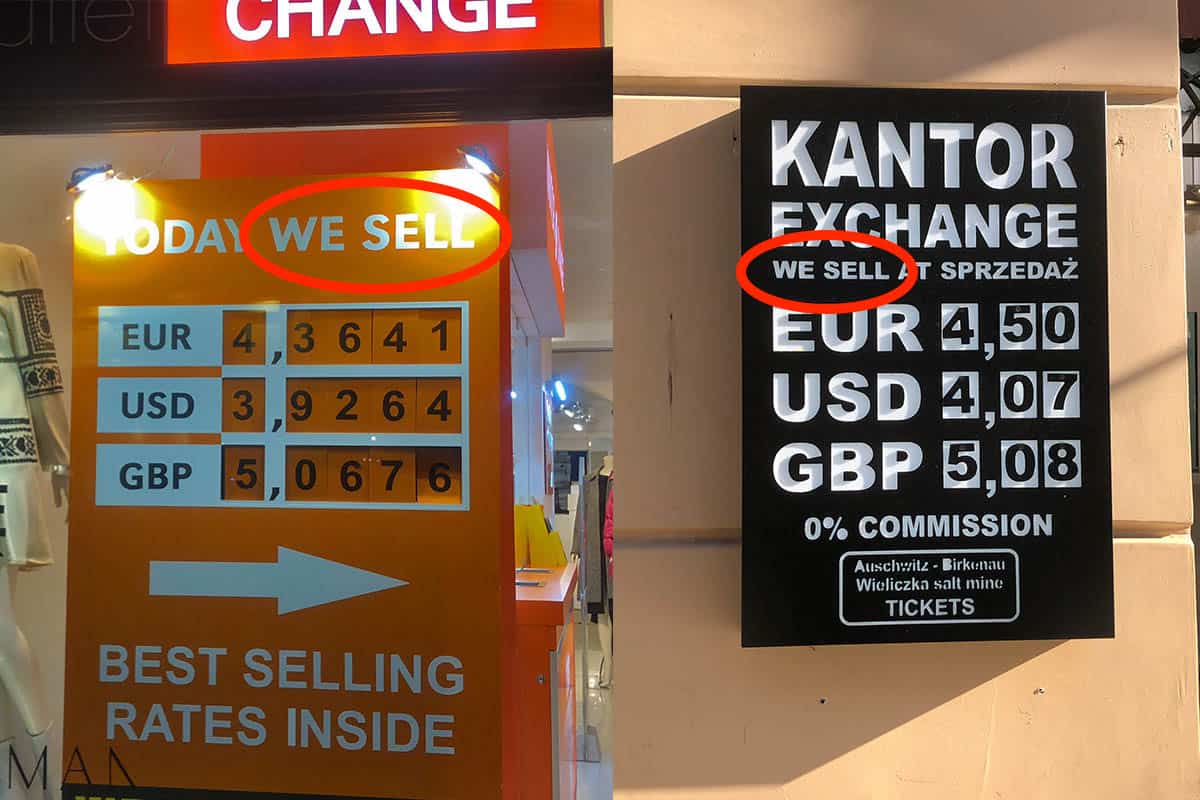
Looks like a great deal! The thing is, you’re looking at the wrong rate because what it says is that they will SELL you their euro for 4.50 zloty. What you need is the BUYING RATE because they will be buying your euro. I know it sounds confusing. Thankfully, I found this really informative video by HONEST GUIDE that explains this better.
How to Avoid: If I haven’t said it enough, when you’re already in Europe, look at the buying rate instead of the selling rate. If you find that the exchange rate is bad, go look for another place. There usually are honest money changers around. They’re just not as prominent as the bad ones.
4. ATM with Bad Exchange Rates
If you think you’ll not gonna run into bad exchange rates because you’re using ATMs to get cash, think again. In Europe, you’ll find a lot of non-bank ATMs or bankomat. The problem is, while they allow you to withdraw money easily, the transaction fees and exchange rates are pretty bad. Scratch that, insanely BAD. We’ve tried it a few times before just to compare and swore never to use them again.
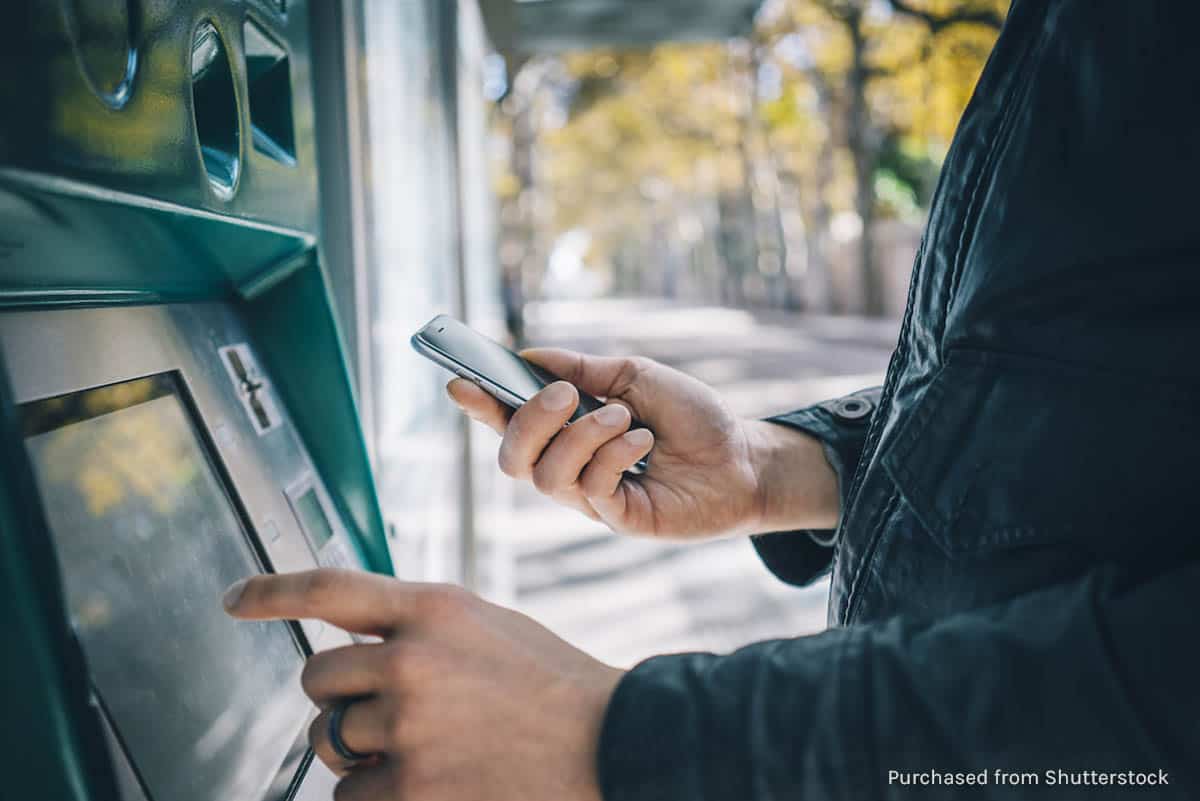
Their goal: Get you to withdraw money at a very bad rate.
Their usual spots: They’re everywhere — in almost every tourist spot in almost every touristy city in Europe.
Okay, fine, these cash machines operate within the confines of the law, but they’re such a ripoff, it surely feels scammy. But it’s not just these international non-bank ATMs. Some local bank-based ATMs also try to dupe you by offering you their so-called Dynamic Currency Conversion (DCC). What is it?
In a nutshell, when you’re using an international card to make a withdrawal, the machine will ask you whether or not you want to be billed in your card’s original currency (for example, PHP or USD) or in the destination’s local currency (say, Euro or kuna or zloty or crowns). Sounds pretty harmless, right? NOT. If you agree to be billed in PHP or USD, you’re basically allowing them to set their own exchange rate and you bet they will be using a TERRIBLE rate to squeeze more money out of you.
The right thing to do is to choose the destination’s local currency. For example:
- If you’re in Italy or France and the machine asks, “Would you like to be billed in EURO or in your card’s home currency?” Choose EURO.
- In Croatia, if the machine asks, “Would you like to be billed in KUNA (HRK) or in your card’s home currency?” Choose KUNA.
- In Poland, if the machine asks, “Would you like to be billed in ZLOTY (PLN) or in your card’s home currency?” Choose ZLOTY.
Always decline the dynamic conversion.
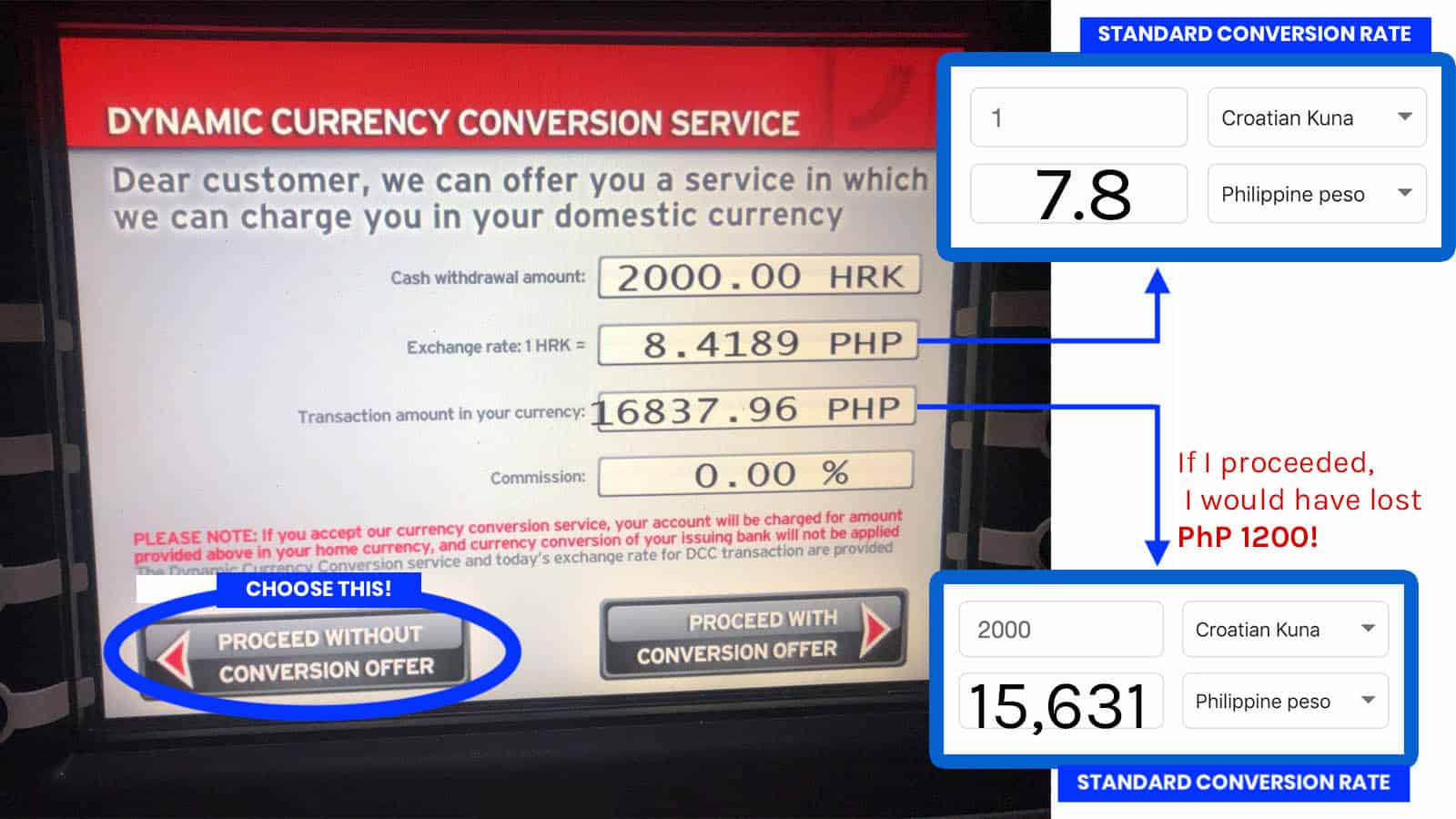
How to avoid: Don’t let them convert for you. Always choose to be billed in the destination’s local currency.
Sometimes, it’s a YES/NO question: “Would you like to be billed in your card’s home/domestic currency?” Choose NO or DECLINE.
Sometimes, the machine words it differently. Instead, it will show you the conversion rate and then ask you to choose between “Proceed with Unknown Rate” and “Proceed with the Guaranteed Rate.” Choose the UNKNOWN RATE. Don’t pick their “guaranteed” rate. It’s guaranteed to be a bad conversion!
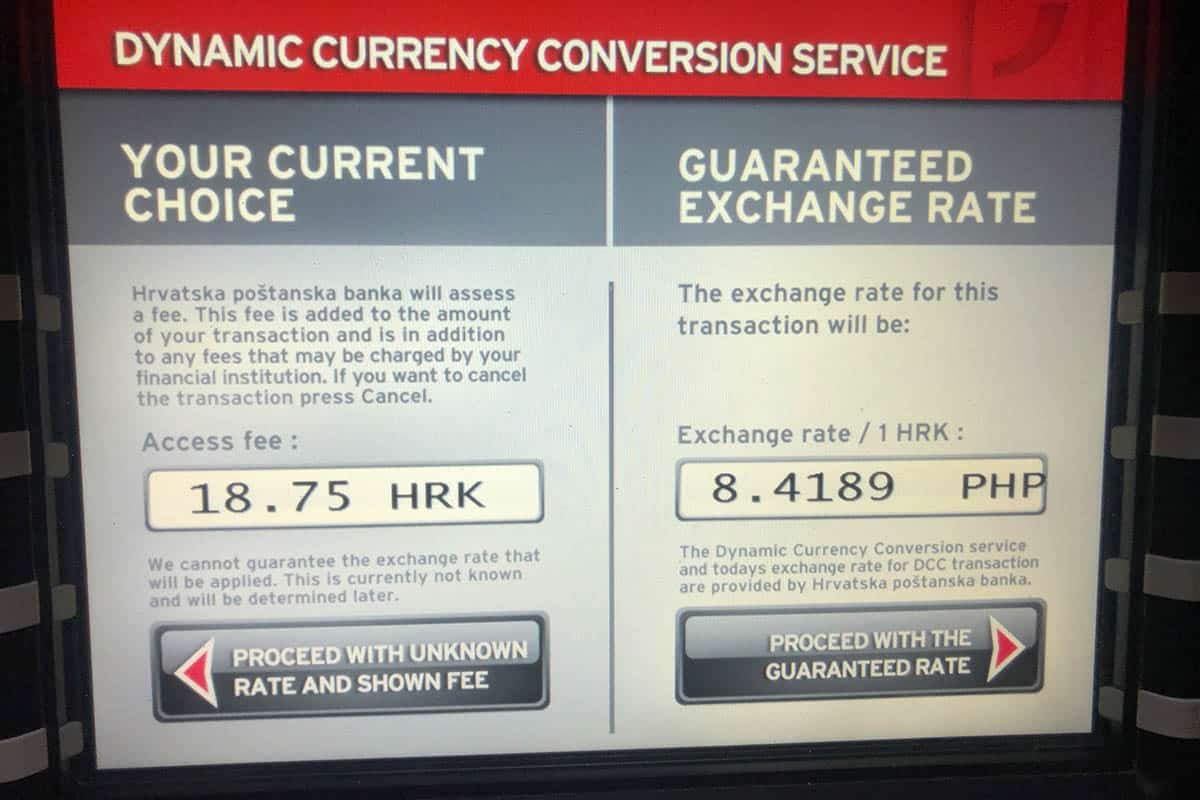
Sometimes, they’re pretty insistent. After you decline, it will ask you one more time: “If you don’t use our conversion, we cannot guarantee the exchange rate that will be applied. Are you sure you want to proceed without conversion?” Yes, you’re sure. Decline the conversion.
5. Petition Scam
I’ve seen this in action in many European cities especially in Paris, Krakow, and Rome.
Their goal: To force you into making a donation and/or steal your wallet or phone.
Their usual spots: Airports, train stations, and other touristy areas.
Their MO: Someone, often a woman, approaches you and asks you to sign a petition. She does sign language, so you would think she’s deaf-mute. After you grace their form with a signature, they will reveal that the petition is actually a donation pledge and insist that you give her money. The thing is, they’re not really deaf-mute! They’re just pretending to guilt you into making a big donation. You’d think it would be easy to shake them off, but no. They will annoy you, follow you or embarrass you to death until you give in.
In other cases, while you’re busy signing, someone else is busy stealing your wallet or phone. Sometimes, they don’t pick pockets but they force tourists into paying them money by
How to avoid: Simply ignore them when they approach you and avoid eye contact. (But always make sure you keep an eye on your valuables whenever you go out.) If they insist, tell them you know what they’re trying to do.
6. Friendly Tourist Scam
We almost fell for this in Istanbul. I was walking around near the Blue Mosque when a man asked if I could take a photo of him. Being the kind person that I am (haha, yes, I have to insert that), I obliged. I even took a considerable amount of time waiting for the crowd behind him to clear up and made sure the light hit him right. Hahaha. I returned his phone and was about to walk away but he started engaging me in a friendly small talk, asking me questions about where I was from and how I was liking Istanbul so far. Then he brought up the idea of us exploring together and asked if I was with someone. Hmmmmmmm. That’s when my alarm bells went ringing like crazy. I politely declined, told him I was with a group, and left.
Minutes later, I met with Vins, who just came from Hagia Sofia. He had an interesting story. He said that a man asked him to take a photo with his phone. Then the guy tried to strike a conversation, asked if he was alone, and brought up the idea of them touring the city together. Vins left immediately.
Two super friendly strangers at two places doing the exact same thing? I highly doubt that it’s a coincidence. My bet is they’re part of an elaborate, organized scam. And a quick google search will reveal that it probably was.
Their goal: Take you to a club where you would pay for the most expensive drink of your life or take you to a store where you will be forced to buy an expensive item.
Their usual spots: Touristy areas.
Their MO: To gain your trust, these scammers would usually pretend to be tourists just like you or an expat (they would introduce themselves as such). Their first line is usually, “Where are you from?” And they’re so adept at this that whatever you answer, they have a response that can be quite engaging.
They will offer to tour with you and for a moment you’re gonna have a blast with them. And then they will invite you to a club for a drink or — if you’re a dude — a date with pretty women. You’ll go with them because you’re having a great time with your new friend. You have a drink and enjoy. But when the bill arrives, you’ll be surprised by how much they’re charging you hundreds of Euros just for one fucking drink. They will try to make you pay for it, detain you, and threaten you until this ridiculous bill is settled.
In some cases, they won’t even tour with you. They’re gonna rob you right then and there. In one account by a Pinoy in Moscow, he was taking photos when a group of female tourists asked him to take a picture of them. They introduced themselves and they had a good short chat. They seemed friendly. Then, before they left, they asked for a group selfie. While he was posing for the camera, one of the girls was able to take his wallet from his bag. Ouch!
How to avoid: Unless you met them at your hostel, don’t talk to strangers who approach you first no matter how friendly (or goodlooking, haha) they are. When somebody approaches you, tell them you’re part of a group and you’re waiting for them.
7. Bar or Club Scam
I can’t count the number of times I have been approached by a tout offering “good time with sexy ladies.” Sometimes, it’s the sexy ladies themselves who would invite me for a night out at the club. It’s funny because I’m not that kind of guy (wuw, lol) and more importantly I’m not the right market, if you know what I mean. Hahaha. And that’s great because it means I am very unlikely to fall for this scam!
Their goal: Take you to a club where you would pay for the most expensive drink of your life or where they would steal your credit card details.
Their usual spots: Touristy areas or bar areas.
Their MO: These scammers use attractive women as bait. They would lure unsuspecting men (often walking alone or in a pair) into a bar or a strip club. Sexy woman then asks you to get her a drink and you’ll probably buy one for yourself too. But that’s all they need you to do. From here, there are several possibilities:
- The drink is overpriced. You’ll be paying hundreds of euro for a couple of drinks. If you dispute this, prepare to be met by bouncers who will threaten you, leaving you with no choice but to settle this horrible bill. If you’re lucky, that’s it. You leave the bar traumatized. But in many cases, the story doesn’t end there.
- The drink is drugged, in some cases. And while you’re trying to get a grip, they already have your credit card charging it for thousands of euro. Often, you won’t realize this until you check your transactions and it would be too late by then.
In other versions, there is a “free show” and they will tell you that you don’t need to pay anything and that you can just order a beer and go if you don’t like it. But the drink will be super overpriced.
How to avoid: Check the reputation of the establishment before entering a club or bar. And don’t go with random strangers no matter how good they look!
8. Fake Police
Anything that involves police officers can be nerve-wracking for a tourist in a foreign land. The last thing we want is to be in an episode of Locked Up Abroad. Here’s why this scam is effective.
Their goal: Steal your cash or cards through inspections.
Their MO: A random person asks you for directions or just strikes a conversation with you. When they leave, police officers approach you and claim that the person you just had a chat with is under surveillance and that they need to check your passport and your wallet for either fake money or drug money. Panicking and confident that you didn’t do anything wrong, you hand them your wallet. While you’re not looking, these fake cops will take your cards or money or swap your legit notes with fake ones.
In some cases, these fake cops operate at train stations and try to inspect your ticket. They will claim that you’re holding an invalid ticket and that a fine must be settled.
How to avoid: Remember, no police officer will insist on checking your wallet. They might check your passport, but wallet, highly unlikely. If you’re approached by police officers who want to see your wallet, tell them that you’re willing to go to the police station with them. If they’re real cops, there should be no issue.
9. The Table Trick
This happened to a friend. In many European cities, restaurants with outdoor seating are quite common. I also often choose to be seated outside because I like taking in the view as I fill my face with food. LOL. But the problem with this is that you’re exposing yourself to scammers too.
Their goal: Steal your phone or wallet on the table. Many diners actually leave their phone on the table when they eat or while waiting for their order. I used to be like this too!
Their MO: These scumbags approach tourists at a restaurant or cafe. In many cases, someone who looks like another tourist will ask you for directions. They will place a map on your table and you will try to help. Once they’re gone, you’ll realize that the phone on your table is missing.
You see, the map is a prop. While the scammer’s one hand is on the map, the other is under it, trying to grab your phone. You don’t realize it because the map is blocking your view.
Sometimes, it’s not a tourist with a map. In some cases, it’s a local selling newspaper or asking you to sign a petition. Both the newspaper and the clipboard serve the same purpose: block your view so you don’t notice that they’re taking your phone off the table.
How to avoid: Avoid placing your phone/wallet on the table. Keep it in a secure place, away from someone else’s reach.
10. The Shell Game
It’s one of the most rampant scams in Europe, especially in Paris, Berlin and Barcelona.
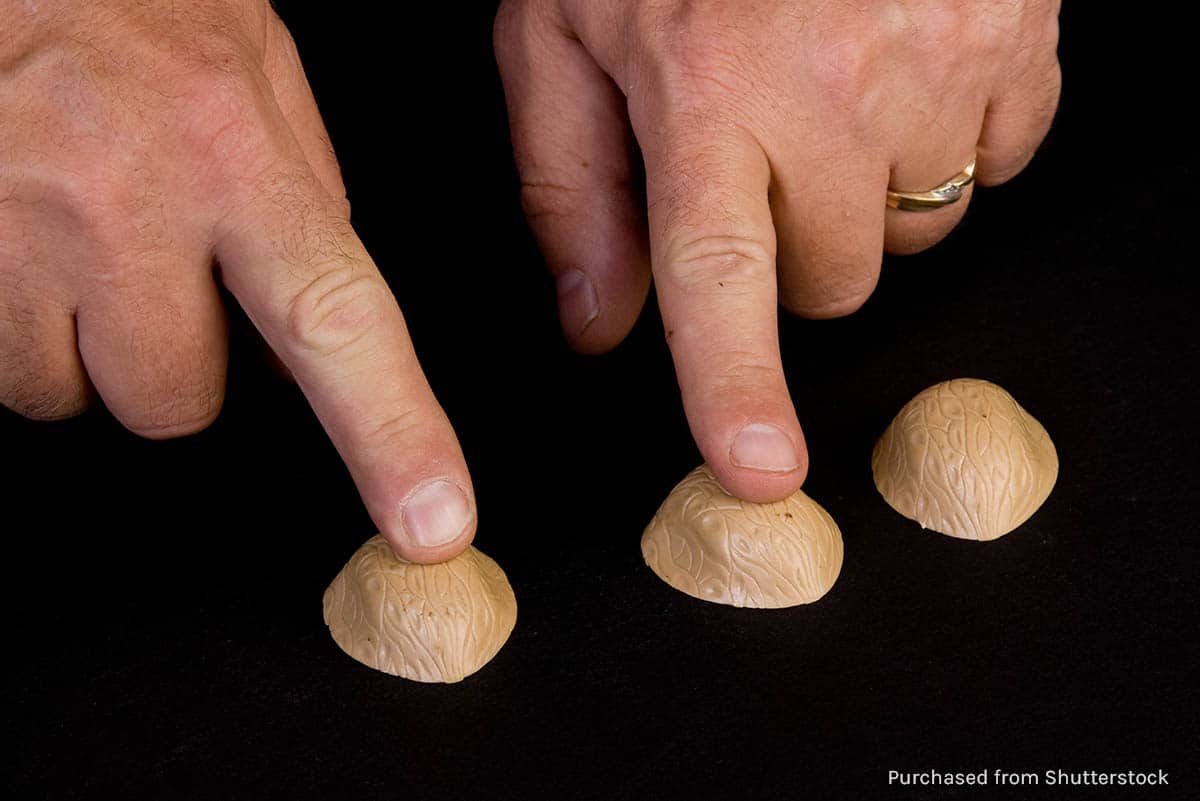
Their goal: Fool you into betting more money.
Their MO: You see a group gathered around a man playing a little gambling game with three cups and a ball. Sometimes, it’s three shells and a pea. Some of them make bets (on which cup they think contains the ball). In many instances, there is a minimum bet: 50 euro. If you stop and watch, a few of them will probably win. You’d probably think, this looks legit because other people win. But those “winners” are part of the act. They’re accomplices! In some instances, they will let you win at first to get you to bet bigger next time. But it’s a losing game because they’re cheating.
How to avoid: Ignore them when you see them in the streets. They’re not gonna force you to watch.
11. Money Switching
If you’re like me, you get overwhelmed by foreign bank notes. Often, they look alike! Some soulless conmen take advantage of this.
Their goal: Switch bills when you pay so they get more money from you.
Their usual spots: Taxis, stores at touristy spots
Their MO: This happened to us. When it was time to pay our cab driver, we handed him a 50-lira note. He complained that we only gave him a 5-lira note. Because we weren’t that familiar with their notes, we thought, well, maybe we really made a mistake. So we handed him another 50 lira; this time, we were absolutely sure. And still, he claimed we gave him 5-lira. That’s when we knew we were being conned. They switch the notes so fast you won’t even notice.
The video below was filmed in Argentina, but this also happens in some parts of Europe.
How to avoid: When paying, double check the notes and say them out loud. If they try to pull this on you, stand your ground.
12. Overcharging Restaurants
In many cities in Europe, it’s normal for restaurants to serve bread before your actual order arrives. In countries like Italy or Portugal, a small amount called coperto or couvert is charged per person. That’s perfectly legal. But that’s not the scam. Some restaurants take it to the next level.
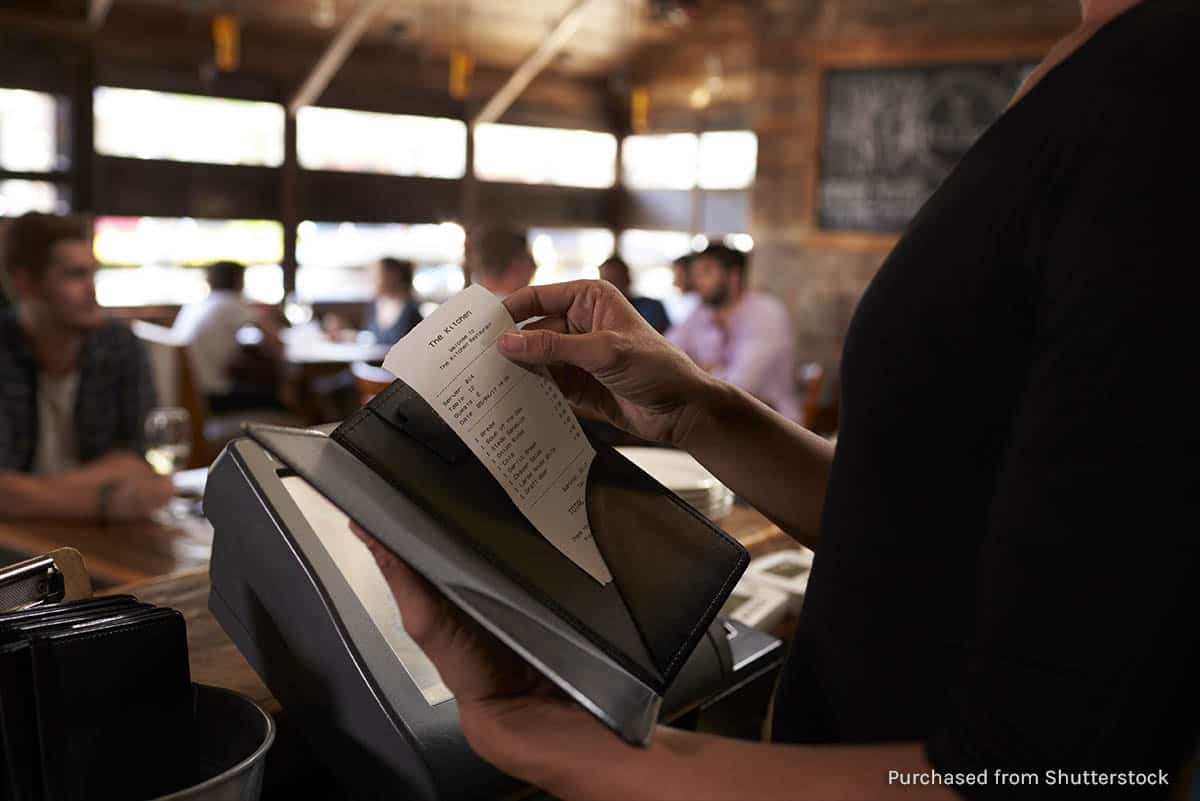
Their goal: To make you pay for food at an astronomical price or food you never ordered.
Their MO: This comes in many forms.
- Serving dishes that you didn’t order. In some restaurants, while you wait for your actual order, the waiters will serve a couple of dishes and insist that you try them. You might think they’re complimentary. Or if you smell something fishy, so you’ll tell the waiter you don’t want it. But he’s really persistent. You’ll get tired arguing so you’ll probably let them put it on your table and not touch it. But then, even when you’re not done yet, they will serve another dish. And when the bill comes, you’re charged for everything, even those you did not even touch. This happened to us at a restaurant in Istanbul. And when we checked online, numerous other tourists have complained about the same thing.
- Offering super-expensive off-the-menu items. In this scenario, the waiter will strongly urge you to try something off the menu. He will be so pushy, you will give in. The dish was nothing extraordinary, but when the bill arrives, you’re surprised to be charged for sooooooo much.
- Having two versions of the menu. Some restaurants have two menus: one in the local language (French, Czech, Hungarian, etc) and one in English. While most restaurants are honest, some deceive tourists by having higher prices on the English menu.
- Inserting phantom items on the receipt. In other cities, they might charge you for items that they did not even serve and you didn’t even see. So always check your receipt!
- Giving you a HUGE serving of per-weight dishes. It’s perfectly normal to see items on the menu that are priced per 100 grams or so. But what’s scammy is that they deliberately give you a giant serving in order to force you to pay more. In some cases, the claimed weight is too far from its real weight. This happened to me in Prague. When I ordered ham, which was sold per 100 grams, I specifically told them that I only wanted 200-300 grams. They gave me a plate measuring around 600 grams, way more than I could consume. I tried complaining but they would insist that this was what I ordered.
How to avoid: Read reviews first before entering a restaurant. Always ask for the price before you order. And if they’re serving you food that you never ordered, tell them you’ve been in the city for a long time. And double check the receipt!
13. Friendship Bracelet Scam or Flower Scam
Another incredibly common scam throughout Europe!
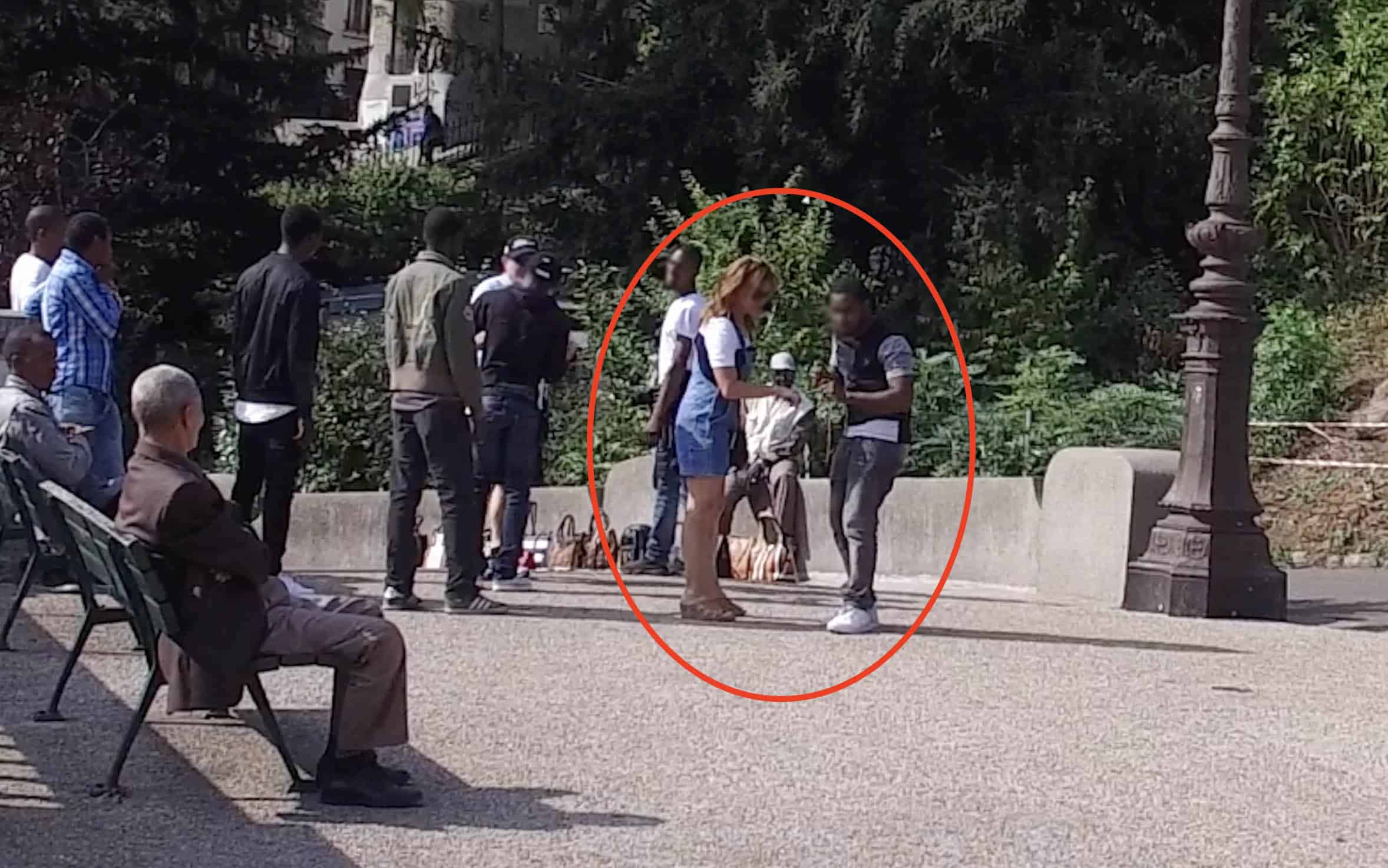
Their goal: To coerce you into paying for an overpriced string bracelet or flower that you never wanted to buy.
Their usual spots: Touristy spots, especially in front of churches.
Their MO: You’re walking when a man with a bunch of string bracelets in one hand approaches you. He will try to get your attention, most likely by asking you if you want to see a magic trick, by raising a hand for a high-five, or by telling you that he’s giving you a bracelet for free (a GIFT!). Whatever it is, his aim is to wrap a string bracelet around your wrist. The whole thing takes time but they’re sweet talkers. Once you have the bracelet on, he will charge you for it and demand an excessive amount. If you refuse, the other string guys will approach and intimidate you into paying.
In other cities, instead of string bracelets, they use flowers (a rose or rosemary). A little kid will hand you a flower and just when you think it’s sweet, they or another person will show up and demand payment for it.
How to avoid: When they approach you, just ignore them. They’re annoyingly persistent but they’re not really gonna hurt you.
14. Photo Scam
Their goal: To charge you for a photo.
Their usual spots: Touristy spots.
Their MO: In many touristy places throughout the continent, you’ll find people in costume eager to have a photo with you. It can be people in stilts in Venice, gladiators in Rome, or women in full flowery getup in Barcelona. Some will approach you and your instinct is to have a selfie with them. Don’t! Because once you’re done, they’re going to demand payment for it. And they won’t accept coins! Some of them charge for 20 euro per photo, a complete and utter ripoff!
How to avoid: Just don’t mind them and don’t take photos of or with them.
15. The Helpful Local Scam
At a train station in Lisbon, we were about to get tickets from one of the machines when a guy approached us and offered help. “Do you need help purchasing tickets?” he said. We said no. He was a bit persistent, so we just walked away. As we were leaving, he then moved to another person offering his help to other trusting tourists.
Prior to the trip, I had read about this scam already so I knew what to do. This happens in many cities in the continent.
Their goal: To take your cash, convince you to buy invalid tickets, or steal your phone or wallet.
Their usual spots: Metro or train stations, airports, touristy spots
Their MO: These douches often hang out around ticket machines waiting for clueless tourists to get overwhelmed by the process. They will offer help. There are many versions but here are the common outcomes according to online accounts:
- They will help you get the ticket and run away with it. In this case, they just want your ticket. That is, if you’re lucky. Other possibilities are much worse.
- They will help you insert money but it will be rejected. Little did you know that they had already switched the notes quickly.
- They will tell you that the machine is not working and convince you to buy a “ticket bundle” which they claim is a great deal. They will point you to another guy, sometimes with a Staff ID, so you could pay them for the package. When you use the ticket, the gates will reject them because they sold you invalid tickets.
- They will sell you tickets but these will turn out to be fake and you’ll be fined. When you use one of these tix, someone with a Staff ID or uniform will show up. That person is not a real employee either. They’re an accomplice, and they will force you to pay a fine for using a fake ticket.
- They will steal your wallet/phone. While you’re busy trying to get a ticket, the good samaritan is busy pocketing your phone or wallet.
How to avoid: If someone approaches you to help, just say no and keep an eye and hand on your belongings. If they insist, go to the manned window instead and purchase tickets from there.
2️⃣0️⃣1️⃣9️⃣ • 1️⃣1️⃣ • 9️⃣
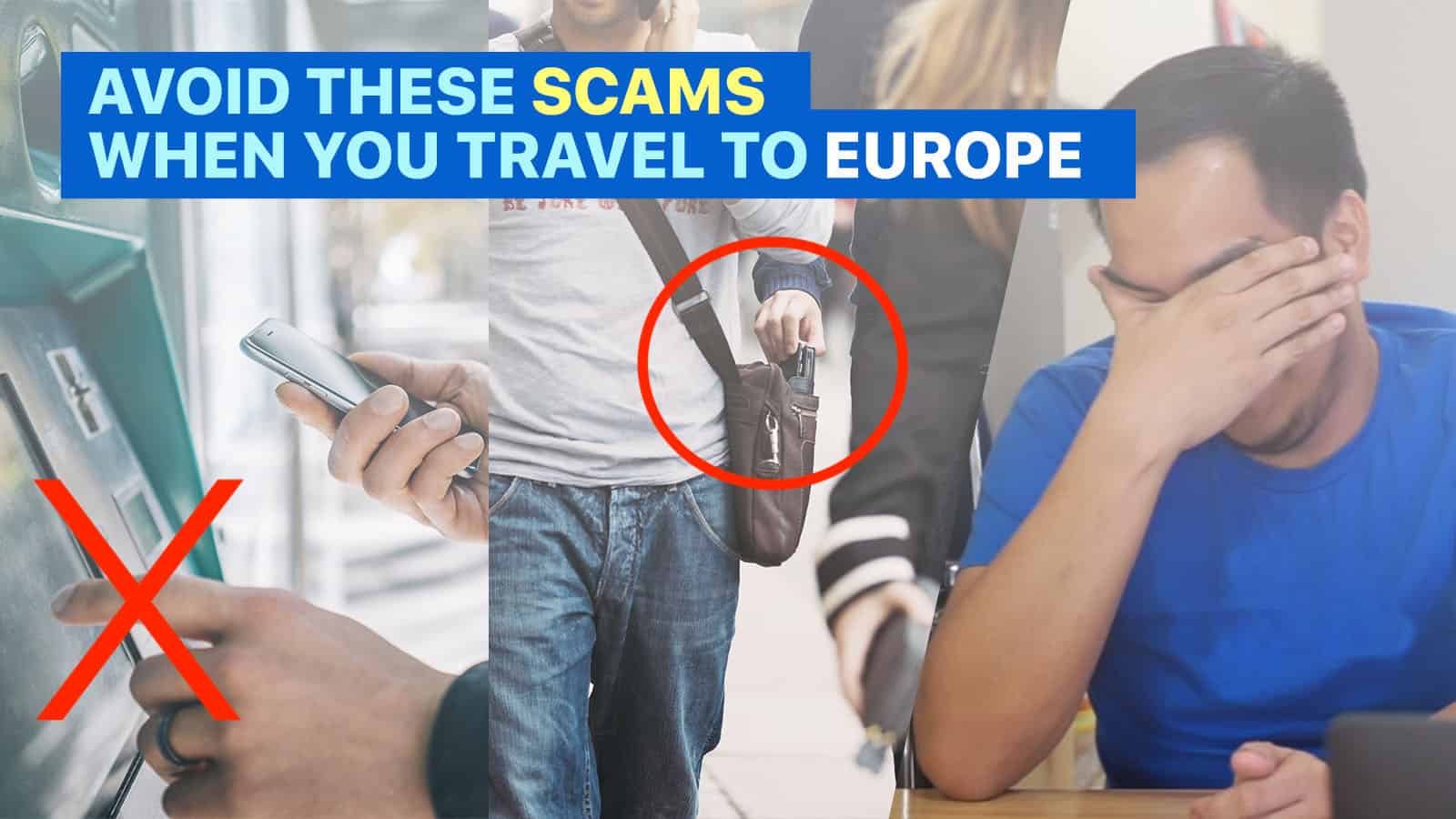



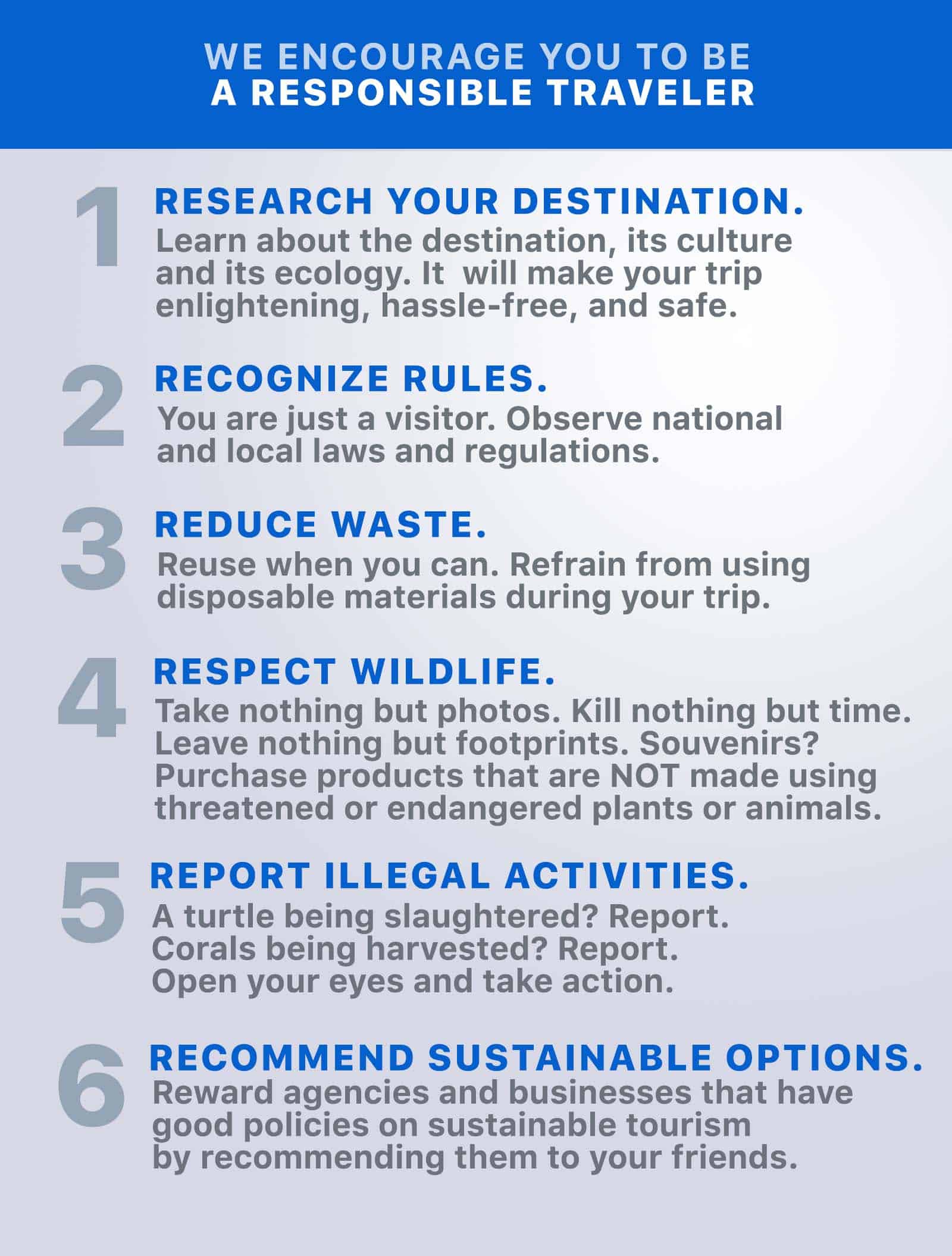




















There’s also the romance scam where a person lures you into thinking that he or she is into you romantically. Soon enough, they’ll be asking for money because of some sob story; or that they finally want to see and be with you but they need money to be able to travel. When you give in, the person suddenly vanishes along with your money.